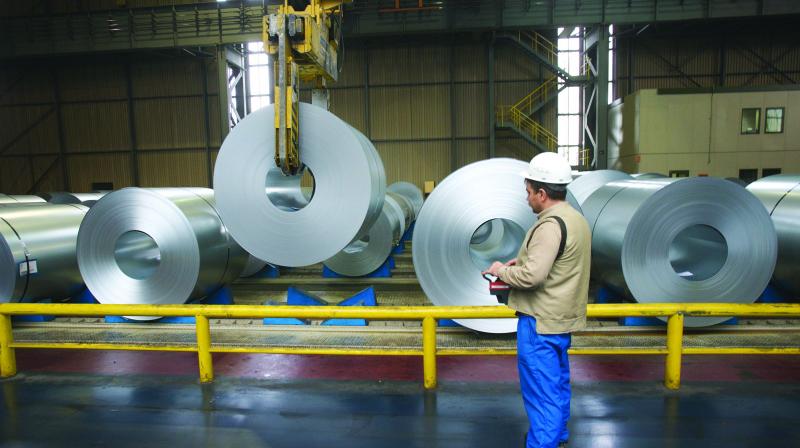Steel enters bear zone on liquidity crunch

Chennai: Sluggishness in construction and automobile industries has pushed steel prices into the bear market. Both spot and futures prices are down by over 20 per cent from their highs in August-September.
The NBFC crisis, which has affected construction and auto demand, has in turn shrunk the demand for steel products. Spot steel prices in the Ludhiana market has fallen 21 per cent from Rs 39,600 per tonne in the last week of August to Rs 31,100 in the last week of June.
Similarly, the near-month contract prices of steel in Indian Commodity Exchange have fallen 22 per cent from their recent high of Rs 39,050 in September to Rs 30,390 last week. Between mid-February and June, prices have dropped 15 per cent in both spot and futures markets.
“Two largest consumers of steel – automobile and real estate industries-- are going through very challenging times now, primarily due to heavy liquidity crunch in the hire-purchase and leasing market because of challenges in the NBFC industry, which was the main liquidity lubricant to the market. ICEX futures price has come down from a high of Rs 39,000 in September 2018 to Rs30,000 per tonne now, clearly forewarning the market about the impending weakness in the Indian economy,’ said Sanjit Prasad, Managing Director and CEO, ICEX.
World Steel Association data shows India is languishing at the bottom rungs of the consumption ladder with a per capita consumption of only 70.9 kg against the global average of 224.5 kg.
Even globally, steel prices are under pressure due to higher Chinese production and lower consumption amidst trade war and fear of a global slowdown.
According to the World Steel Association, global crude steel output in 2018 stood at 1,808.6 million tonnes, growing 4.6 per cent over 2017.
“If there is no resolution to US-China talks, then there is a fear of Chinese currency devaluation. In India, the demand has remained sluggish and fear of dumping has also led to correction in steel prices.” Kunal Shah, Head of Commodity Research at Nirmal Bang Security, said.
Domestic steel exports also have declined by 30 per cent year-on-year to 0.7 tonnes due to a demand slowdown in the traditional markets of South-East Asia.
“The spot and future prices of steel contracts are indicating a medium-to-long-term bearish cycle. With a 15-percent correction since February this year, we expect the steel prices to correct by another 10 per cent in the next three months,” said Ajay Kedia, MD, Kedia Commodities.

